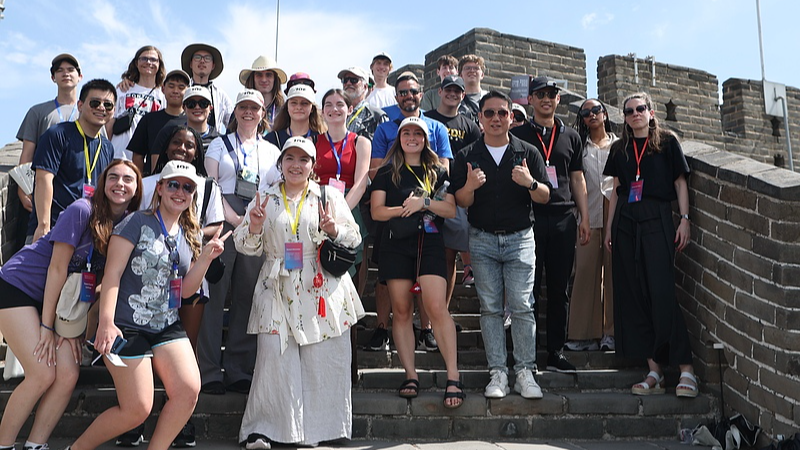This past Sunday, November 16, in Los Angeles, the 2025 U.S.-China People’s Dialogue kicked off amid optimism and urgency over strengthening people-to-people ties. Now in its third year, the three-day forum brings together more than 30 experts from academia, business, technology and cultural sectors.
Co-hosted by the Center for International Security and Strategy at Tsinghua University on the Chinese mainland and the National Committee on U.S.-China Relations, this year’s theme, "Bridging the Cultural and Informational Divide," zeroes in on higher education, artificial intelligence, pop culture, social media and the Chinese American community.
The newly introduced "group dialogue+" format layers plenary sessions, focused breakout discussions, field visits and exchanges with international students, aiming to unearth fresh insights and actionable recommendations. Yang Bin, vice chair of the Tsinghua University Council, says these multi-dimensional conversations are vital for building a rational and constructive public opinion environment in the U.S.
Stephen Orlins, president of the National Committee on U.S.-China Relations, emphasizes that people-to-people exchanges are "the foundation" of stable bilateral relations. "If we don’t improve the foundation, the structure is weak," he notes, underscoring calls for both governments to ease barriers to dialogue and travel.
For young citizens, entrepreneurs and changemakers watching closely, the dialogue offers a blueprint for how cross-border collaborations in AI research, student programs and cultural projects can fuel innovation and mutual trust. As digital bridges strengthen, participants hope to see real-world policies that expand exchange programs and open new pathways for global cooperation.
Reference(s):
U.S.-China dialogue highlights role of people-to-people exchanges
cgtn.com




